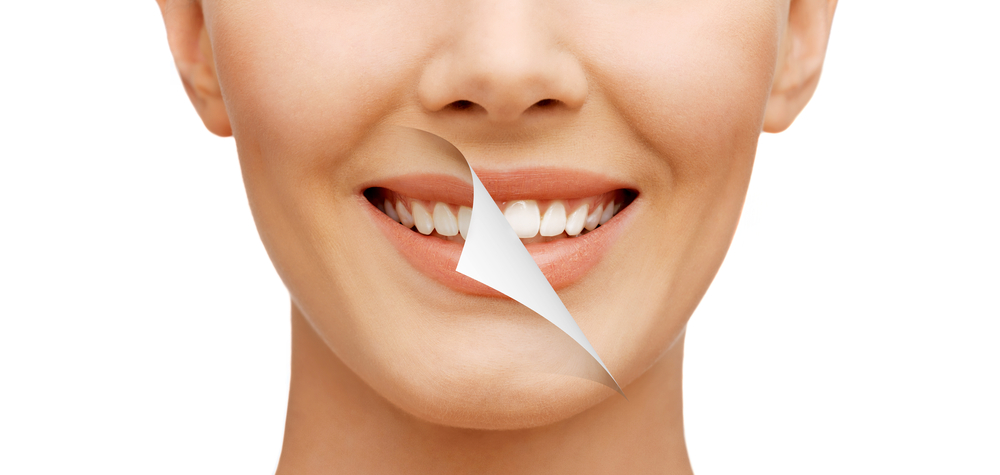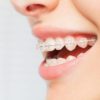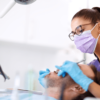In the past, dentists’ treatment for gum disease was hydrogen peroxide mouth rinses and it was noticed that teeth became whiter over time following its use.
So teeth whitening was found quite by accident.
Choosing professional teeth whitening from a Sydney dentist or dental cosmetic business is a choice that can be made, as well as over-the-counter products for home use.
There are gels, strips, toothpastes, mouthwashes and dental curing light kits.
So which is best and safest?
Once called teeth bleaching because the active ingredient is hydrogen peroxide, whitening is somewhat controversial; different countries have different rules regarding the permitted concentrations of hydrogen peroxide and allowable methods of administration.
With an Aussie smile the instant indicator of socioeconomic status, employability, and one currency of self worth, only a dental practitioner can provide products containing more than 6 per cent hydrogen peroxide; some in-chair whitening systems use 35 per cent where it effectively permeates deep into the enamel structure. Weaker concentrations act upon only the enamel surface of the tooth.
For New Zealanders, non-professionals can apply up to 12 per cent.
In the United Kingdom it’s illegal for anyone other than a dentist to use concentrations higher than 0.1 per cent.
There is little evidence of harm revealed in these vastly different policies.
While hydrogen peroxide is the active ingredient in most whitening products, some gels contain carbamide peroxide or sodium perborate which both break down and release hydrogen peroxide.
So is there a difference between professional whitening in a cosmetic setting, and do-it-yourself home kits? In equal measure you will fine this basic smile makeover technique widely promoted using dental SEO by cosmetic dentists across Australia.
The lines has blurred between these options somewhat with dentists now offering take-home treatments, while non-professionals now also offer in-chair treatments with blue light activation.
Both methods work the same way: by releasing hydrogen peroxide; but in-chair systems release higher levels, and most particularly systems preferred by dentists. Dentists take a dental mould in order to create a whitening tray designed for the treatment to touch enamel only and not gums, negating burns that can be caused by strong hydrogen peroxide solutions.
Research suggests in-chair whitening by dentists increases the strength of tooth enamel, making resistance to acid erosion while home whitening kits show a loss in enamel mineral content, which leads to tooth weakness over time.
This suggests home systems should be used with the supervision of a dentist.
There are teeth whitening claims of ‘peroxide-free’ treatments which is a little like those moments when white privilege is equating Covid masks to slavery. These can be free of peroxide before use, but activate then release of it. Any product genuinely not containing hydrogen peroxide in any form is unlikely to be only moderately effective.
Enamel that is bleached by DIY whitening products may be vulnerable to damage from abrasive toothpastes, hard bristled toothbrushes and heavy handed scrubbing, instead of gentle, even pressured circular movements.
Teeth don’t have to be continually whitened, but the effects will gradually fade over 6-12 months depending on the level of oral care and diet.
There is a range of home remedies for teeth whitening, from rubbing banana peel on your teeth, to brushing with a mixture of lemon juice and bicarb soda.
Be mindful that some home remedies simply don’t work. Others contain acids, sugars and damaging abrasives, which leads to tooth damage and declining dental health when used inappropriately and routinely.
The use of activated charcoal has increased in popularity in recent times and is considered beneficial for oral health and teeth whitening.
A recent review in the Journal of the American Dental Association found, however, insufficient evidence in support of these claims, and further research must be done.
In the interest of good dental health, prior to undergoing any course of teeth whitening, it is imperative to have a check-up establish a healthy mouth, able to manage the temporary sensitivity caused. It will also predictably identify any teeth that simply will not whiten, thereby avoiding an unsatisfactory result.






